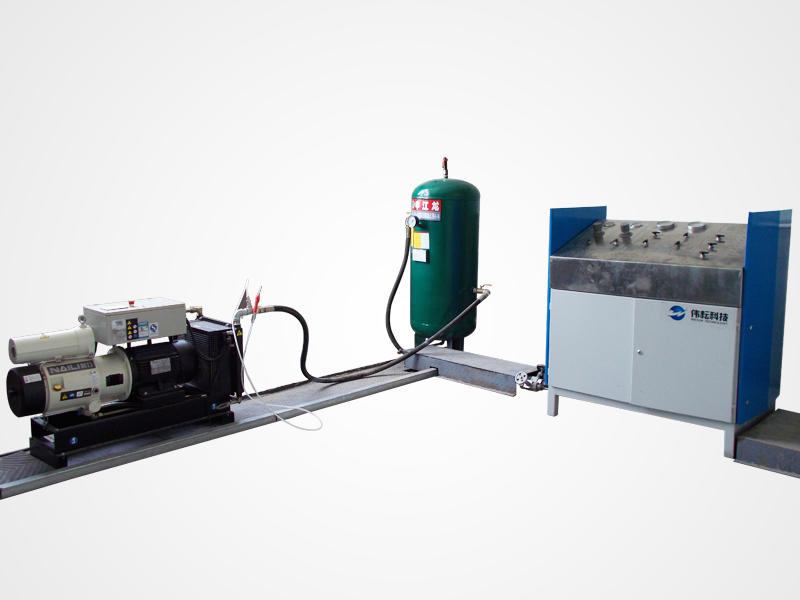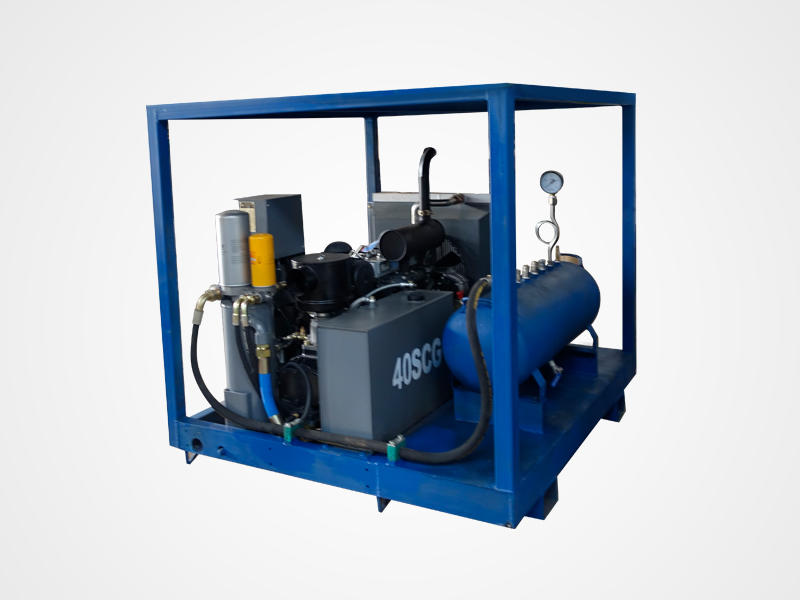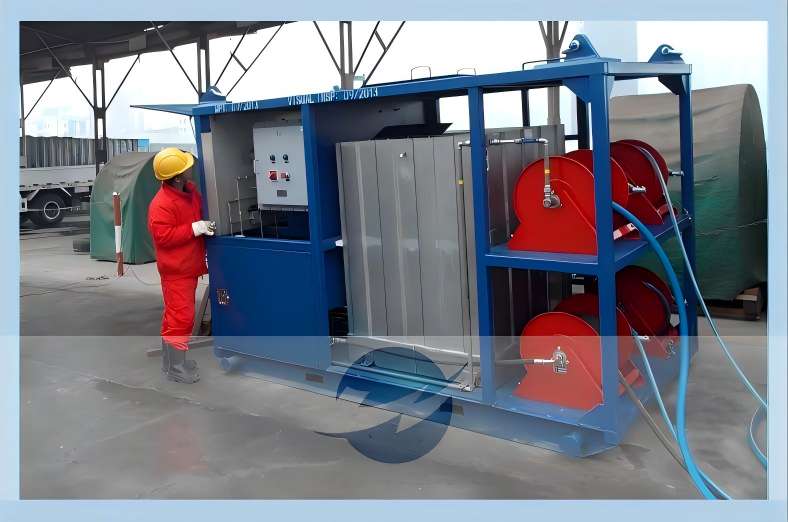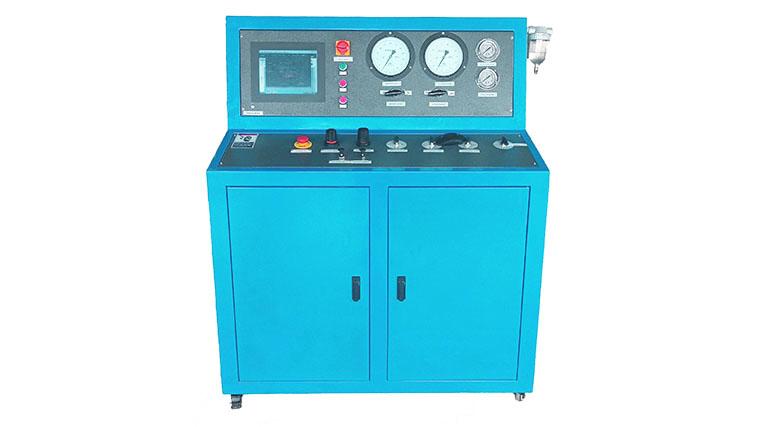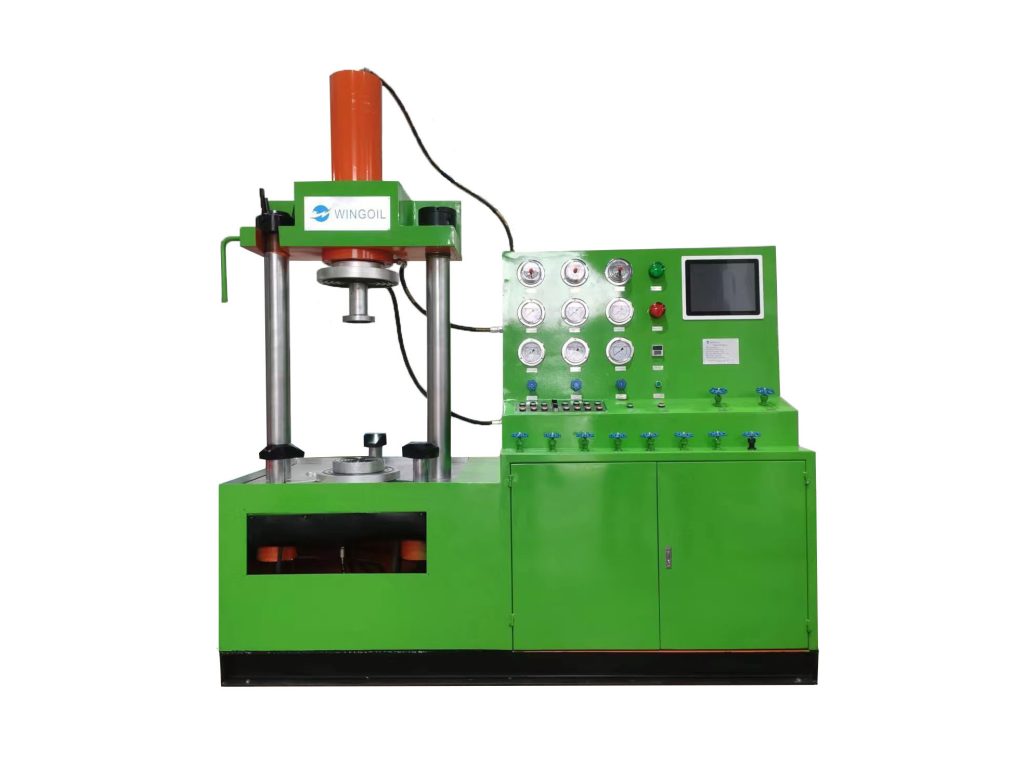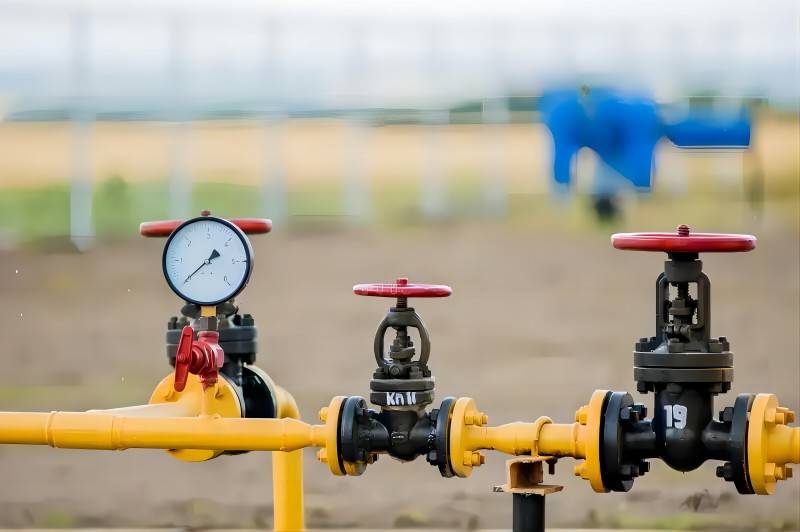The Application of Pipe Pressure Testing Equipment on Air Compressors: Ensuring Safety and Efficiency
In the world of industrial machinery, air compressors are the unsung heroes. They power a vast array of essential processes across various industries, from manufacturing to construction. However, ensuring the reliability and safety of air compressor systems is paramount. One of the key tools in achieving this is pipe pressure testing equipment. In this article, we will delve into the application of pipe pressure testing equipment on air compressor systems, exploring its importance, types, and the benefits it offers.
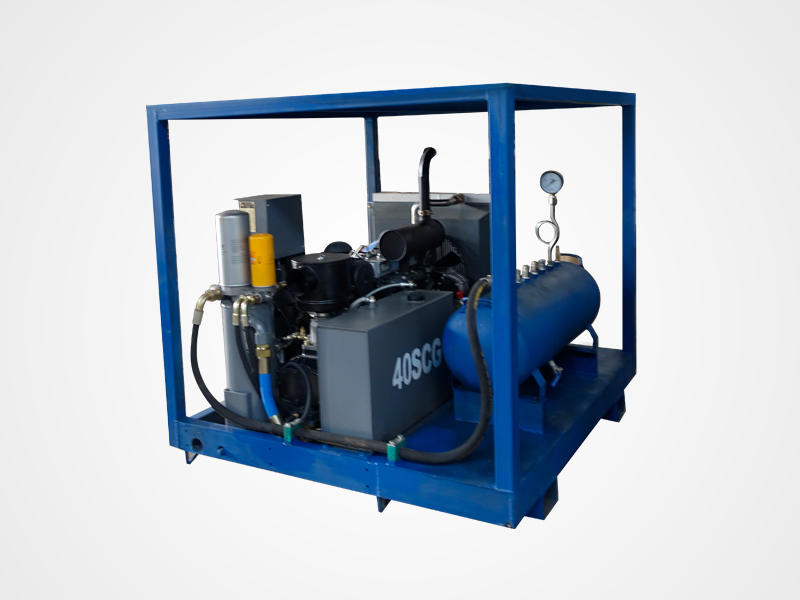
Types of Pipe Pressure Testing Equipment
Before we dive into the application of pipe pressure testing equipment on air compressors, let’s first understand the various types of testing equipment available:
- Pressure Gauges: Pressure gauges are perhaps the most familiar type of testing equipment. They provide a visual representation of the pressure within a system, helping operators monitor the air compressor’s performance.
- Pressure Transducers: These devices convert pressure readings into electrical signals, making it easier to record and analyze pressure data digitally. Pressure transducers offer greater precision and are often used in automated systems.
- Pressure Relief Valves: Pressure relief valves are safety devices that protect the air compressor system from over-pressurization. They automatically release excess pressure, preventing damage to the equipment and ensuring the safety of personnel.
- Pressure Testing Pumps: Pressure testing pumps are used to pressurize a system to a predetermined level for testing purposes. They come in various designs and capacities, allowing for precise pressure control during tests.
- Pressure Testing Hoses: These flexible hoses connect various components of the testing setup, allowing for the safe transfer of pressurized fluids. They are crucial for conducting pressure tests effectively.
Importance of Testing Air Compressor Systems
Now that we have a basic understanding of the types of pipe pressure testing equipment, let’s explore why testing air compressor systems is so crucial.
- Safety Concerns: Safety should always be the top priority in any industrial setting. Over-pressurization of air compressor systems can lead to catastrophic failures, posing significant risks to both equipment and personnel. Regular testing helps identify and mitigate these risks.
- Compliance with Industry Standards and Regulations: Many industries have stringent regulations governing the safe operation of air compressors. Regular testing ensures compliance with these standards, preventing costly fines and legal issues.
- Detection of Leaks and Potential Failures: Air compressor systems are prone to leaks, which can lead to reduced efficiency and increased energy consumption. Pressure testing equipment helps detect leaks early, allowing for timely repairs and cost savings.
- Ensuring System Efficiency: Efficiency is key in industrial operations. Pressure tests help ensure that air compressors are operating at their optimal pressure levels, minimizing energy wastage and maximizing productivity.
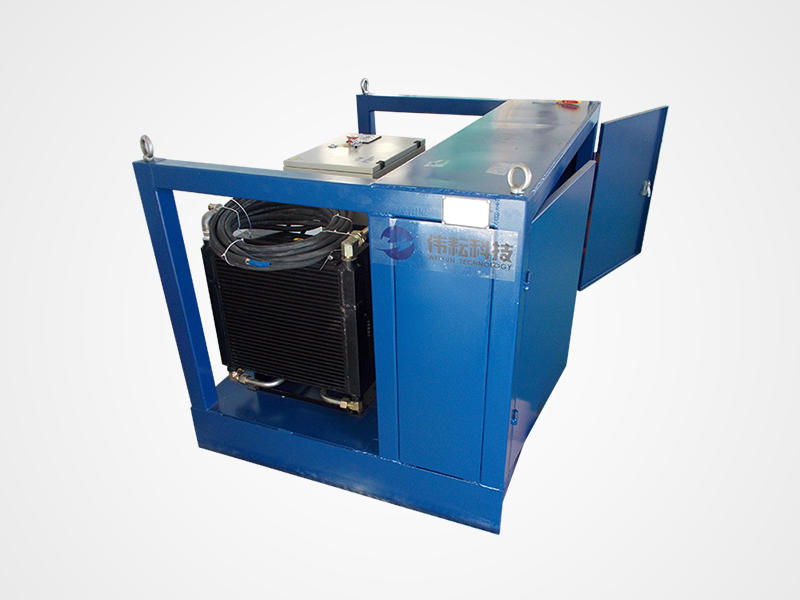
Application of Pipe Pressure Testing Equipment on Air Compressor Systems
Now, let’s explore how pipe pressure testing equipment is applied to air compressor systems throughout their lifecycle:
1. Pre-Installation Testing
Before installing a new air compressor system, it’s essential to conduct pre-installation tests to ensure its components are in good condition and the system is leak-free. This involves:
- Ensuring Components Are Leak-Free: Pressure testing equipment can be used to check the integrity of pipes, fittings, and connectors to ensure there are no leaks that could compromise system performance.
- Verifying Pressure Ratings: Testing equipment is used to verify that all components, including pipes and fittings, are rated to handle the expected pressure levels within the system. This prevents potential failures due to inadequate component ratings.
- Confirming System Integrity: A comprehensive pressure test is conducted to confirm the overall integrity of the air compressor system before installation. This step is crucial in preventing problems down the line.
2. Routine Maintenance Testing
Regular maintenance is essential to keep air compressor systems in top-notch condition. Pipe pressure testing equipment plays a vital role in routine maintenance by:
- Identifying Leaks: Routine pressure tests can help detect even small leaks in the system, allowing for timely repairs before they escalate into more significant issues.
- Monitoring System Pressure: Continuously monitoring system pressure using pressure gauges or transducers provides valuable data that can indicate performance changes or potential problems.
- Detecting Wear and Tear: Over time, components in air compressor systems can experience wear and tear. Pressure testing equipment can be used to assess the condition of critical components, such as hoses and valves, and determine if they need replacement.
3. Troubleshooting and Repairs
When issues arise within an air compressor system, pipe pressure testing equipment is a valuable diagnostic tool. It aids in:
- Identifying and Isolating Issues: Pressure tests help pinpoint the location and nature of problems within the system, whether it’s a leak, a faulty valve, or other issues.
- Locating and Fixing Leaks: Pressure testing can be used to trace the source of leaks, making it easier for maintenance teams to repair or replace the affected components.
- Verifying Repair Effectiveness: After making repairs or replacements, pressure tests are conducted again to ensure that the issues have been resolved and the system is back to operating within acceptable parameters.
4. Performance Testing
Evaluating the performance of air compressor systems is crucial for optimizing efficiency. Pipe pressure testing equipment assists in:
- Evaluating Efficiency: Pressure tests can provide data on the efficiency of an air compressor, helping operators identify areas where improvements can be made to reduce energy consumption and enhance performance.
- Measuring Pressure Output and Flow Rates: Accurate measurements of pressure output and flow rates help ensure that the air compressor is delivering the required air supply to support various industrial processes.
- Comparing Results to Manufacturer Specifications: Pressure testing allows operators to compare the system’s performance to the manufacturer’s specifications, ensuring that it meets the intended design criteria.
Benefits of Using Pipe Pressure Testing Equipment on Air Compressor Systems
The application of pipe pressure testing equipment on air compressor systems offers numerous benefits:
- Improved Safety: Regular testing helps identify and mitigate safety risks associated with over-pressurization, leaks, and component failures.
- Enhanced System Reliability: Testing equipment ensures that air compressor systems operate reliably, reducing the chances of unexpected downtime.
- Reduced Downtime: Timely detection and repair of issues through pressure testing can minimize downtime and production interruptions.
- Cost Savings: Early detection of leaks and performance issues can lead to cost savings in terms of reduced energy consumption and maintenance expenses.
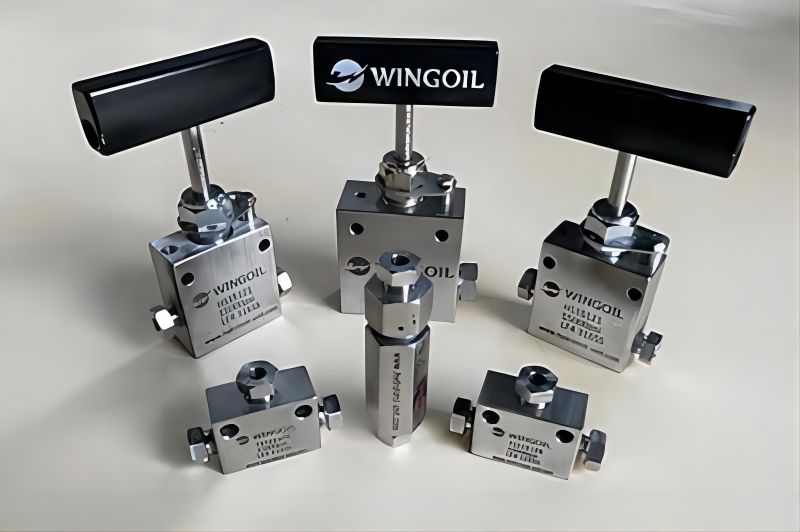
Conclusion
Pipe pressure testing equipment plays a critical role in maintaining the safety and efficiency of air compressor systems across various industries. From pre-installation testing to routine maintenance, troubleshooting, and performance evaluation, pressure testing ensures that these systems operate reliably and within specified parameters. By investing in and regularly utilizing pipe pressure testing equipment, businesses can ensure the longevity and effectiveness of their air compressor systems, ultimately contributing to improved productivity and safety in industrial settings.

